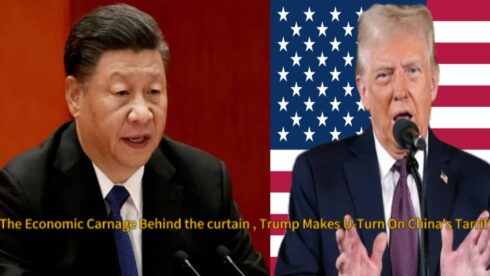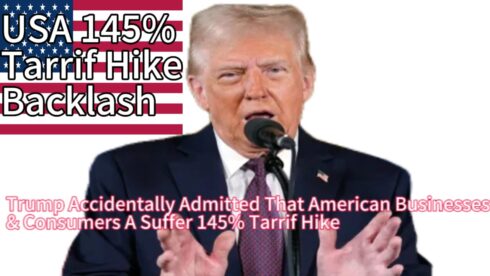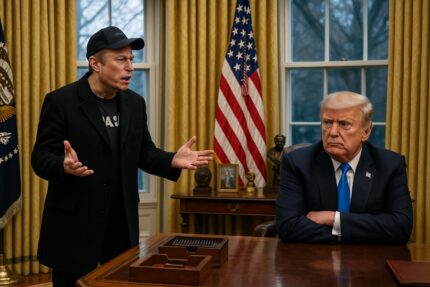Donald Trump, never shy with a microphone, may have just delivered one of the most revealing economic admissions of his political career. While answering a direct question about his much-criticized 145% tariffs on Chinese goods, he contradicted years of misleading rhetoric by openly stating, “when you add that to the price of a product… a lot of those products aren’t going to sell.”
This single sentence inadvertently validates what economists and small business owners have been warning about for years: tariffs are not harmless political tools; they are price inflators. The same man who repeatedly insisted that China would bear the burden of tariffs just admitted—plainly and publicly—that it’s American businesses and consumers who are absorbing the blow.
A Jarring Disconnect: Denial Meets Reality in One Interview
Donald Trump began with a defiant, “No… No… I haven’t brought it down,” in response to whether the tariffs were being eased for struggling U.S. businesses. His insistence that the 145% tariff still stands, despite announcing the previous day that it would “come down substantially,” exposed a jarring contradiction in his economic strategy.
The president seems to be waging two wars: one against foreign competitors and another against the truth. His refusal to acknowledge the burdens his tariffs place on domestic small businesses, while simultaneously admitting those same tariffs are pricing products out of reach, is a rhetorical trainwreck wrapped in political theater.
The Silent Suffering of America’s Small Businesses
Donald Trump may dismiss concerns about small businesses, but Main Street is bleeding. Across the U.S., mom-and-pop shops, startups, and mid-sized manufacturers are buckling under the weight of inflated costs, dwindling sales, and supply chain chaos—all exacerbated by steep tariffs.
These are the economic engines that fuel local economies, yet they are being crushed by policies that favor optics over outcomes. For every “patriotic” tariff Trump touts, countless American families are paying more at the register, cutting corners, and closing doors.
Economic Gaslighting: The Tariff Lie That Won’t Die

Despite the mountain of evidence and now his own words to the contrary, Donald Trump continues to peddle the myth that “foreign countries pay the tariffs.” This economic gaslighting has embedded itself deeply into a portion of the public psyche, despite overwhelming consensus from economists that it’s simply not true.
What makes this moment explosive is the raw hypocrisy: Trump states the tariffs aren’t being lowered, then says they will be, and finally reveals they are causing products to become unsellable. It’s a trifecta of contradiction that shatters the illusion of coherent policy and exposes a fundamental misunderstanding of basic economic principles.
A $1.11 Trillion Boast Built on Economic Decay
Donald Trump boasted, “They were doing uh, $1.11 trillion,” referring to prior U.S.-China trade volumes as if it were a badge of honor. But behind that inflated number lies the erosion of competitive pricing, supply chain resilience, and consumer confidence—all victims of trade war fatigue.
That figure, far from impressive, now looks like a benchmark for what has been lost. Tariffs have gutted previously booming sectors, reduced trade activity, and driven up the cost of essential goods from electronics to groceries. Trump’s brag is hollow—a reminder of what could have been had better policy prevailed.
From “Golden Age” to Economic Cliff: A Legacy in Crisis
Donald Trump’s defenders still herald him as an economic savior, a businessman-president with a golden touch. But this tariff debacle may be the moment history remembers him not as a strategic visionary, but as a self-sabotaging showman who mistook bluster for brilliance.
He’s not ushering in a new industrial renaissance. He’s presiding over a slow-motion collapse, where ideology Donald Trumps pragmatism and political points matter more than people. The 145% tariff, and Trump’s confession about its true effects, will be remembered as a masterclass in economic self-destruction—and a warning to future leaders.














